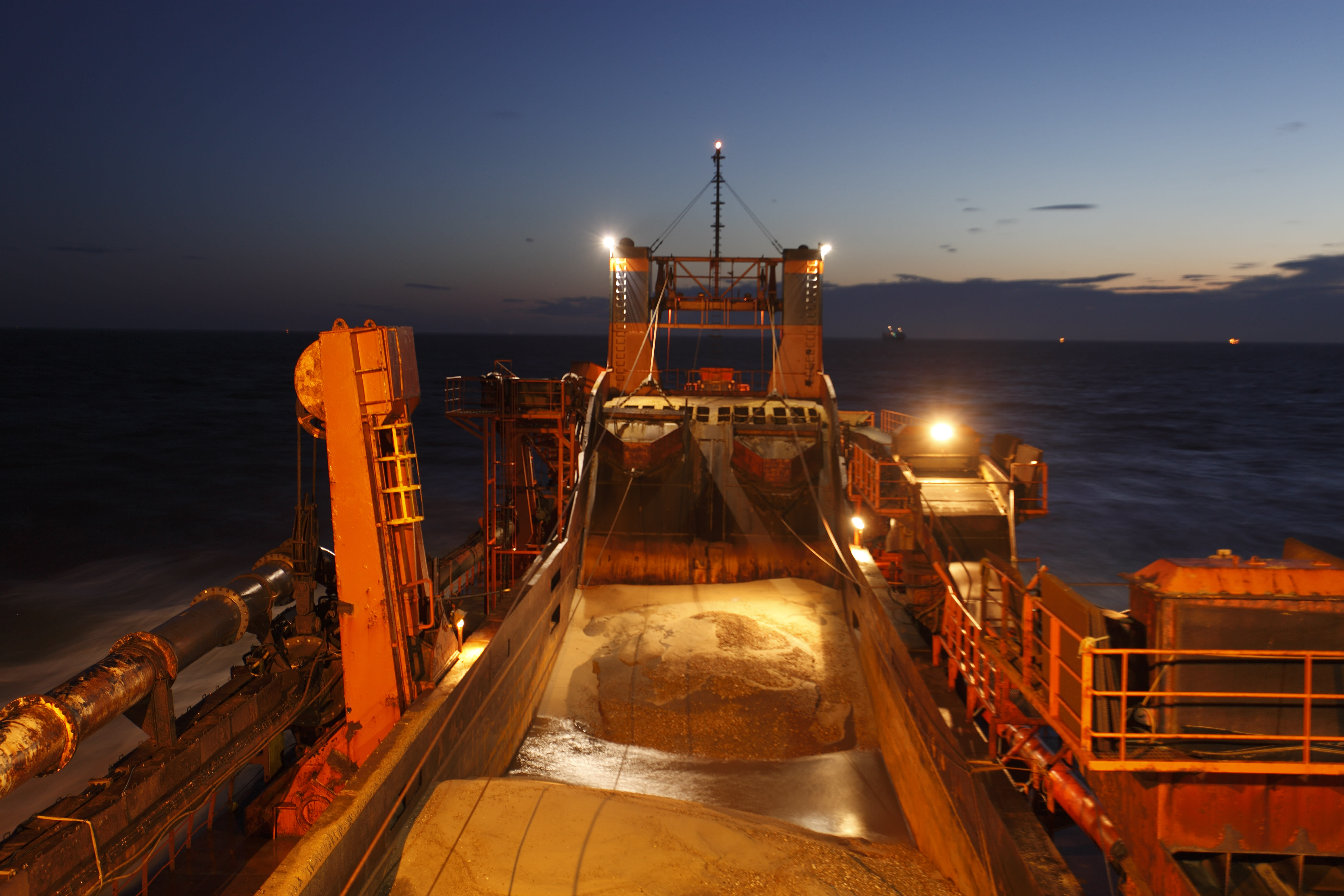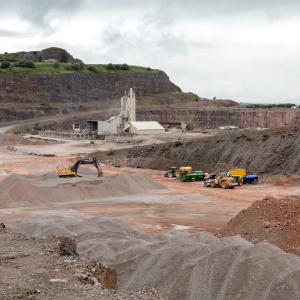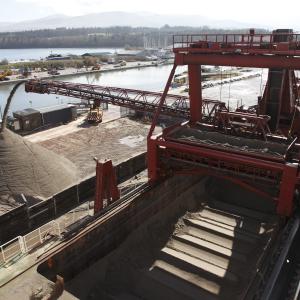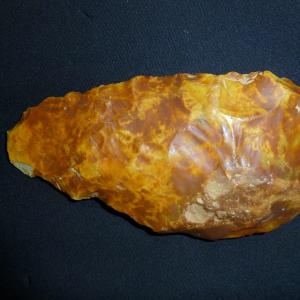
Marine
Mineral resources
We provide licences for the extraction of marine sand and gravel resources, used in construction projects around the country, as well for beach replenishment and coastal adaptation.
Marine sand and gravel
We provide licenses for the extraction of marine sand and gravel resources from the seabed, providing an important source of quality aggregate for construction and civil engineering projects, particularly in the South East of England and South Wales.
Marine sand and gravel are also used in beach replenishment schemes, where they help provide coastal protection and enhance amenity value, and to act as infill for land reclamation projects.
The Crown Estate manages regular marine aggregates tender rounds. See here for more information about this tender process.
The Crown Estate continues to work with British Marine Aggregate Producers Association (BMAPA) and the aggregates industry to help support the effective and sustainable management of our seabed, helping to drive a significant long-term reduction in the total area of seabed licensed for marine aggregate extraction.
As part of our management of marine sand and gravel extraction, we employ an Electronic Monitoring System to record dredging vessel activities associated with our mineral assets, helping to capture and assess dredging intensity, and ensure that all vessels remain within their allocated licensed area.
Other marine minerals
The Crown Estate has interests in evaporite minerals, such as salt, potash and polyhalite, occurring beneath the seabed and issues leases for extraction. These minerals are used in the production of fertilisers and the maintenance of roads as well as by the chemical and pharmaceutical industries.
Capital and maintenance dredging
We licence capital and maintenance dredging projects which enable navigational channels to be created and maintained on the UK seabed, such as to enable ships to move safely in and out of coastal ports. This includes projects like Liverpool2 and London Gateway, where millions of cubic metres of marine sand and gravel have been dredged to create new deep-water port terminals. As part of this, we also provide consent for the disposal of dredged sediment at sea and the use of dredged material, within the 12 nautical mile limit.
Downloads and useful information
The Area Involved 25th Annual Report
Download (3786KB)EMS Report 2022
Download (681KB)Summary Statistics 2024
Download (1073KB)Marine Aggregate Dredging 1998-2017
Download (4250KB)Aggregates Lifecycle
Download (513KB)South Coast Physical Proccesses
Download (6868KB)The Crown Estate Open Data portal
Read moreRegional Dredging Area Charts
Read more
Useful links
Contact

Nick Everington
Portfolio Manager, Minerals
Nick.Everington@thecrownestate.co.uk


